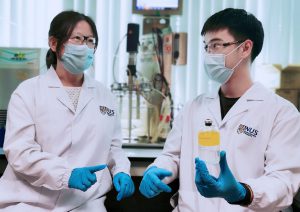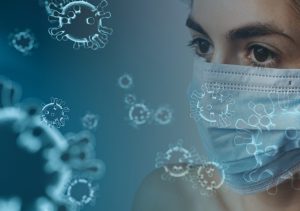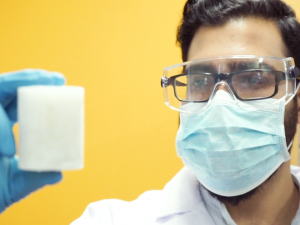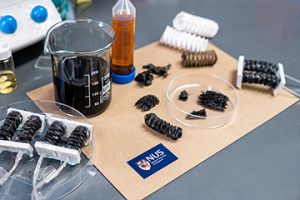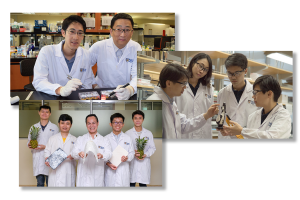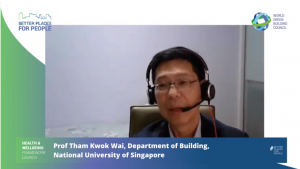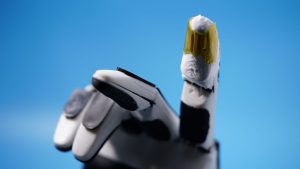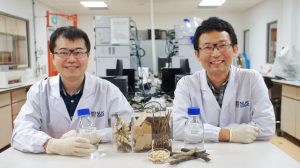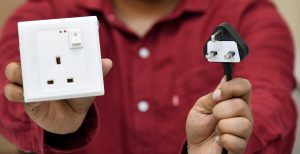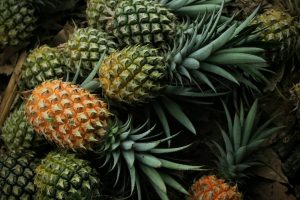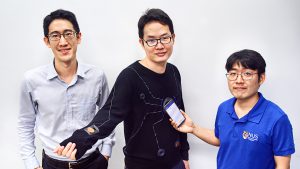RESEARCH NEWS
A multitasking microbe to purify wastewater
Newly-identified bacterium removes polluting phosphorus and nitrogen from wastewater at half the usual electricity cost.
AI platform finds optimal combination of COVID-19 drugs
The platform called ‘IDentif.AI’ was able to examine more than 500,000 combinations of 12 potential drug candidates in just two weeks.
Ice that burns: A fast, safe and economical way to store natural gas
A breakthrough process allows low cost and sustainable production of solidified natural gas (SNG), opening the way to easy storage and boosting the energy security of gas importers like Singapore.
NUS researchers create new metallic material for flexible soft robots
NUS Assistant Professor Chen Po-Yen (right) and doctoral student Yang Haitao (left) and their team created a new metallic material for soft and flexible robots ‘Origami robots’ are state-of-the-art soft and flexible robots that are being tested for use in various applications including drug delivery in human bodies, search and rescue missions in disaster […]
NUS Engineers recognised at IES Achievement Awards 2020
Four research projects by NUS Engineering researchers among shortlisted entries to the Institute of Engineers, Singapore.
Focus on Indoor Environmental Air Quality at WorldGBC Health and Wellbeing Summit
Organised by the World Green Building Council, the global summit Session 3 on Indoor Environmental Quality sought to explore three components of the new WorldGBC’s Health & Wellbeing Framework – Protect health, prioritise comfort and harmony with nature.
Boosting flexibility and reliability in electronic sensors
Highly flexible material maintains exceptional reliability for health monitoring and robot sensing over long-term use.
Marrying chemical and biological processes to turn waste into treasure
Researchers say the novel combination used to extract drug components from discarded seafood shells and wood waste could have wide range of applications.
Smart sockets for a smarter nation
Smart electrical infrastructure promises energy savings and electrical safety on a nationwide scale.
A hybrid approach to turn waste heat into energy
A combination of materials harnesses temperature fluctuations to generate energy four times more efficiently than existing solutions.
Turning pineapple waste into high value aerogel
Eco-waste transformed into versatile aerogels through a rapid and environmentally-friendly process.
NUS develops smart suit wirelessly powered by a smartphone
The suit can help athletes track physiological data like their posture and temperature, powered and monitored via smartphone.



